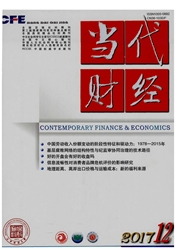

 中文摘要:
中文摘要:
使用自我展示品牌、品牌热爱、品牌忠诚和口碑等变量构建结构方程模型,探讨消费者关注品牌微信公众号行为关联的品牌情感状态以及品牌自我展示属性对品牌情感和口碑意愿的影响。数据表明,消费者对关注的品牌有一定的忠诚度和正向口碑意愿,但品牌情感还未达到热爱程度,对于品牌能否展示自我形象持中立态度。变量关系表明,自我展示品牌的内在自我和社会自我属性对品牌热爱均有正向影响;品牌热爱对品牌忠诚和口碑均有正向影响;内在自我属性对品牌忠诚和口碑均有正向影响,而社会自我对品牌忠诚和口碑无显著影响。研究结论对理解消费者与品牌的在线互动、识别品牌"粉丝"的类型和改善品牌运营具有重要的实用价值。
 英文摘要:
英文摘要:
This paper adopts such variables as self-expressive brand, brand love, brand loyalty and word of mouth to construct a structural equation model, so as to explore the impact of brand emo- tions related to consumers' attention behavior towards brands' WeChat official accounts and the brand self-expressive nature on brand emotions and word of mouth intention. The results show that con- sumers have a certain degree of loyalty and positive WOM intention towards their concerned brands, but their brand emotions have not reached the level of ardent love, thus they would maintain a neil- tral attitude towards the self-expressive attribute of the brand. The variable relations indicate that the inner self attribute and the social self attribute of the self-expressive brands have positive effects on brand love, that brand love has a positive effect on brand loyalty and WOM, and that the inner self attribute has a positive effect on brand loyalty and WOM, while the social self does not. The re- search conclusions are of great practical value for understanding the online interaction between con- sumers and brands, identifying the types of brand "fans" and improving brand operation.
 同期刊论文项目
同期刊论文项目
 同项目期刊论文
同项目期刊论文
 AdvertisingInformation Content of Web Forums and Message Boards Official Posts in ChinaNational 5A R
AdvertisingInformation Content of Web Forums and Message Boards Official Posts in ChinaNational 5A R 期刊信息
期刊信息
